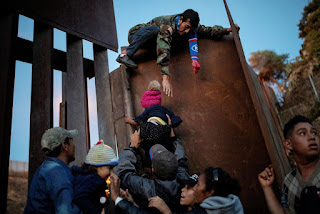In January 2011, the illustrious football coach at Penn
State University, Joe Paterno, learned that prosecutors were investigating his
longstanding assistant coach, Jerry Sandusky, for sexually assaulting young
boys in the football team’s locker room. Paterno even testified before a grand
jury on the matter that month. He had been informed of the rapes back in 1998,
yet he had kept the pedophile on even though additional boys would be at risk
in doing so.
That same month—January 2011—Paterno also began negotiating
to amend his contract that would not expire until the end of 2012. By August
2011, Paterno and the president of Penn State reached an agreement in spite of
the fact that both were by then embroiled in the Sandusky investigation. “Paterno
was to be paid $3 million at the end of the 2011 season if he agreed it would
be his last. Interest-free loans totaling $350,000 that the university had made
to Mr. Paterno over the years would be forgiven as part of the retirement
package. He would also have the use of the university’s private plane and a
luxury box at Beaver Stadium for him and his family to use over the next 25
years.”
The university’s board was kept in the
dark. Directors who raised questions were “quickly shut down.” In the end, the
board gave the family virtually everything it wanted. The board even threw in
free use of specialized hydrotherapy message equipment at the university for
Paterno’s wife. In other words, Paterno (and his surviving family, following
his death in January 2012) got an even better deal as the scandal came to
include Paterno himself.
Joe Paterno, head football coach at Penn State, viewed by a student as "Pa" in PA Matt Rourke/AP
The full essay is at "Enabling Non-Empathetic Leaders."









